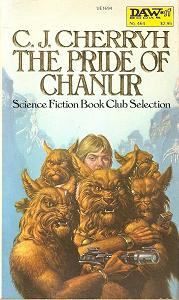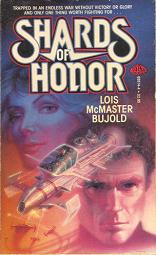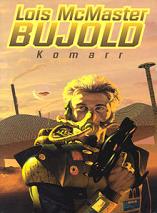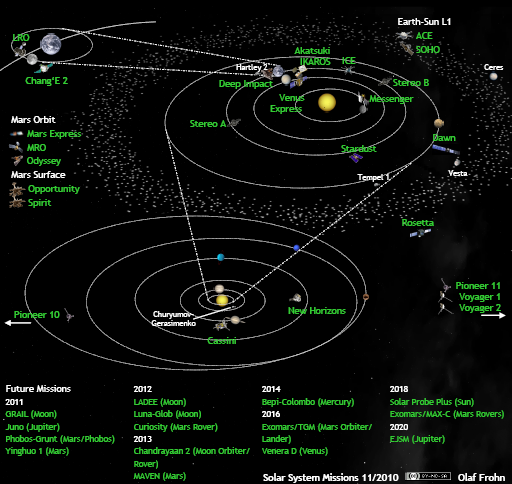James asks for recommendations for hard science fiction written by women. I suggest Lois McMaster Bujold, but Ross TenEyck disagrees:
So a story that is undeniably science fiction, by virtue of being littered with SF props (e.g., ubiquitous space travel), and even one in which all the science is correct or at least plausible, does not necessarily — by my definition — count as hard SF… if all the science details are simply background to whatever the story is. And, although I’ve only read a couple of short stories in the Vorkosigan series, my impression is that it may fall into this boat. Science fiction, yes, science correct-or-plausible, sure, but the stories (so far as I’ve gathered from discussion about them) aren’t really about the science, so to me it isn’t hard SF.
I actually can go along with this, at least in part. Hard science fiction needs to be about the science, if only to distinguish it from all other science fiction. But his unfamiliarity with the Vorkosigan series is showing here. At first glance it does look like a standard mil-sf series, but the genius of Bujold is that she writes stories that revolve around science, technology and the sociological and cultural impact of these, without you realising she is doing this.
Much hard science fiction suffers from technofetishism, where the characters go around lovingly describing each type of ship taking part in a space battle or go into the finer details of the ammunition they’re using in the midst of a firefight. Even when the focus is less militaristic, it can sometimes seem the future is entirely populated by geeks. This is not the case with Bujold: her characters are people comfortable with using futuretech, without particularly noticing it or how it influences their society, but this influence is still there. As a reader it means you yourself have to work harder to notice things too, as they’re not pointed out to you.
The best example is the uterine replicator, first introduced in Shards of Honor. Here’s a technology that means women no longer have to suffer the dangers and side effects of pregnancy anymore, it’s going to have a massive impact on any society introduced to it. Barrayar never had this technology until recently and during the Vorkosigan series you see the effects of its introduction and the accompanying gender selection methods reverb through its society, until in Komarr the fact that Ekaterin had had a natural pregnancy was seen not just as unusual, but as almost perverse. She herself said she did it out of foolish romanticism, but it’s clear she was pressured into it by her husband and it counts heavily against him that he did so. Meanwhile the entire plot of the love story between Ekaterin and Miles himself is shaped by the effects gender selection had on Barrayar’s supply of potential wives, as every familiy went for sons over daughters and males started to outnumber females heavily…
And of course, uterine replicators are at the heart of Barrayar.



